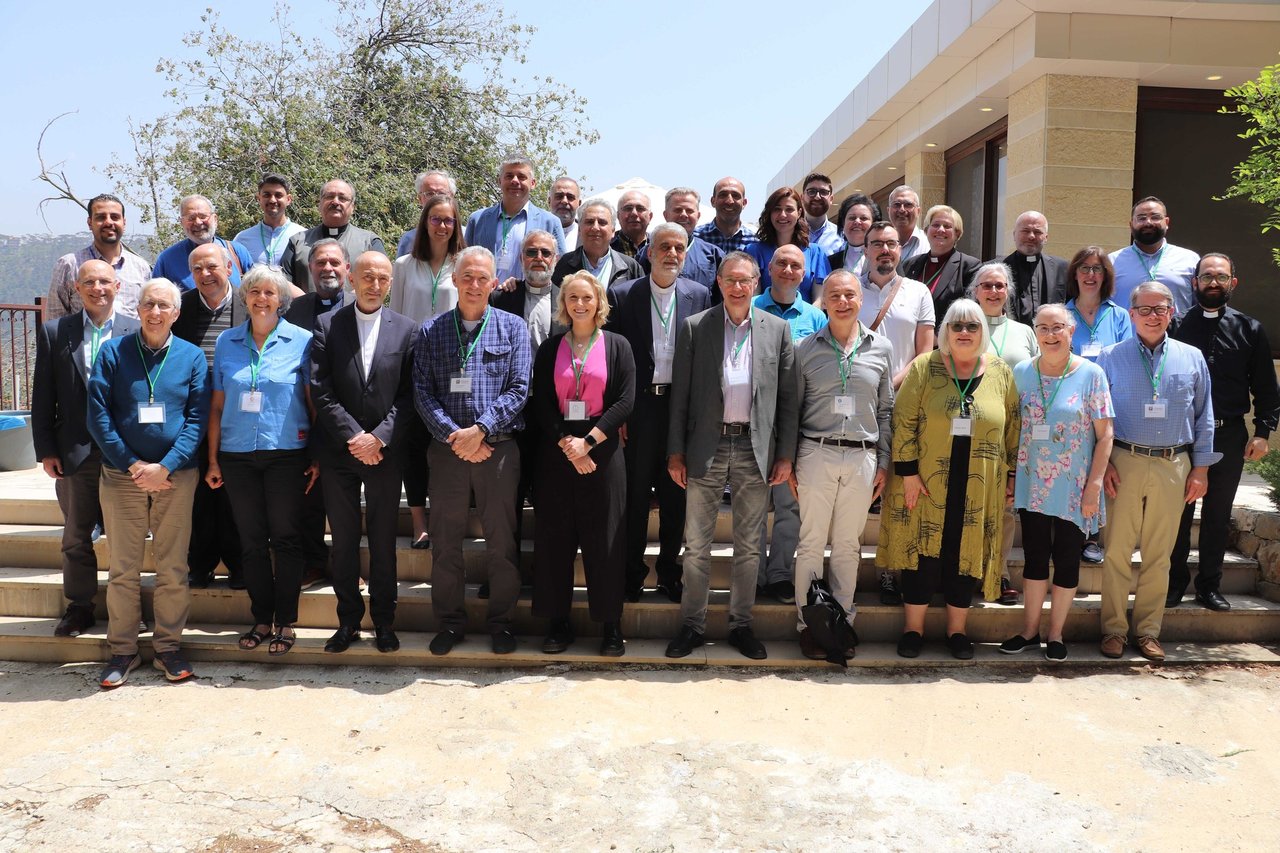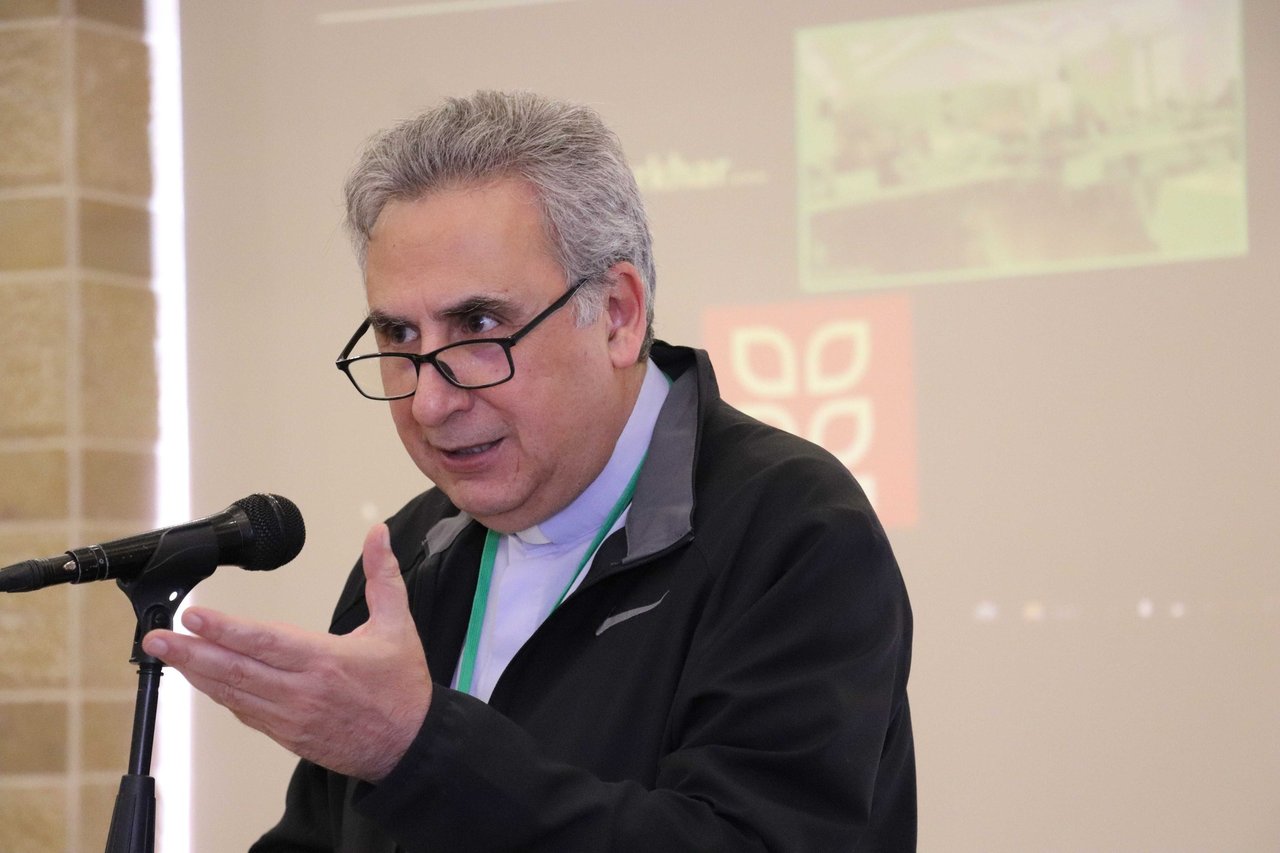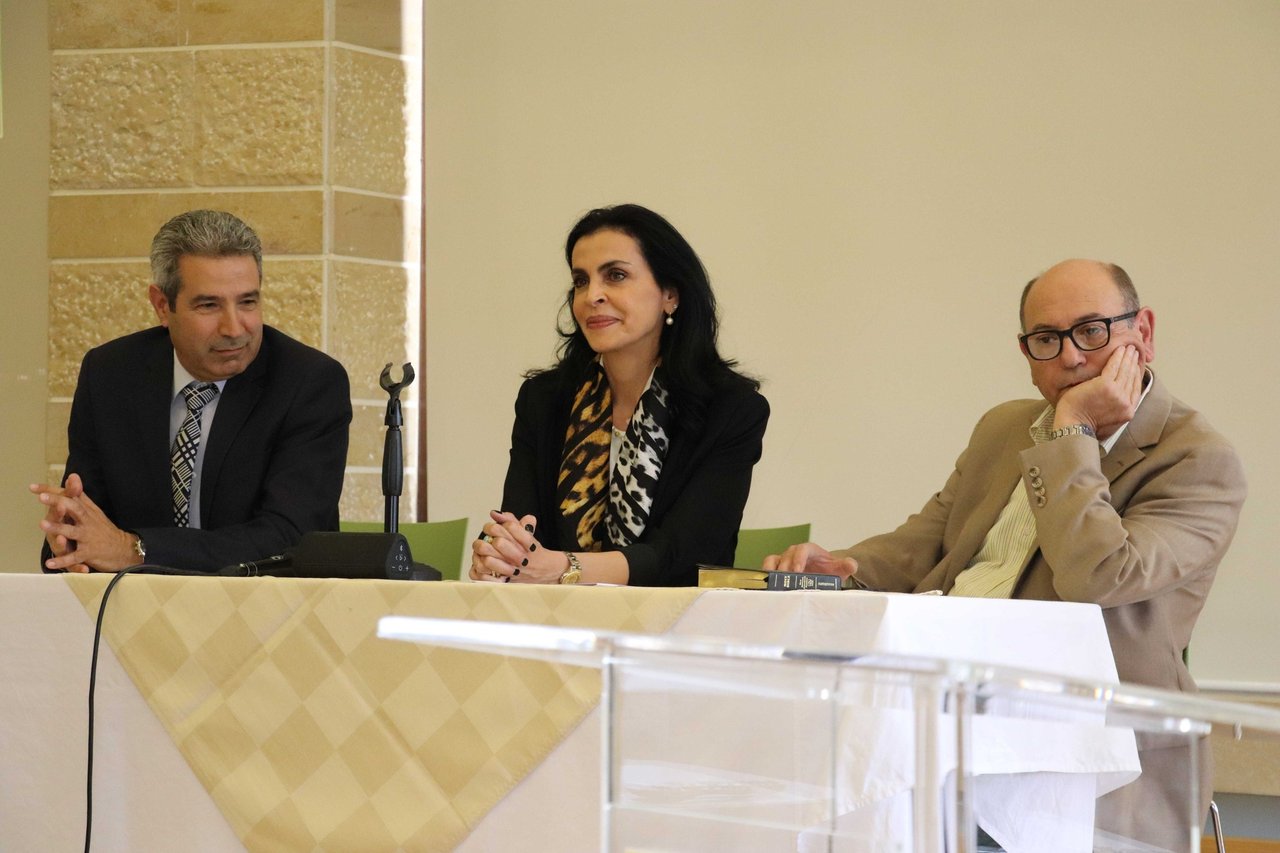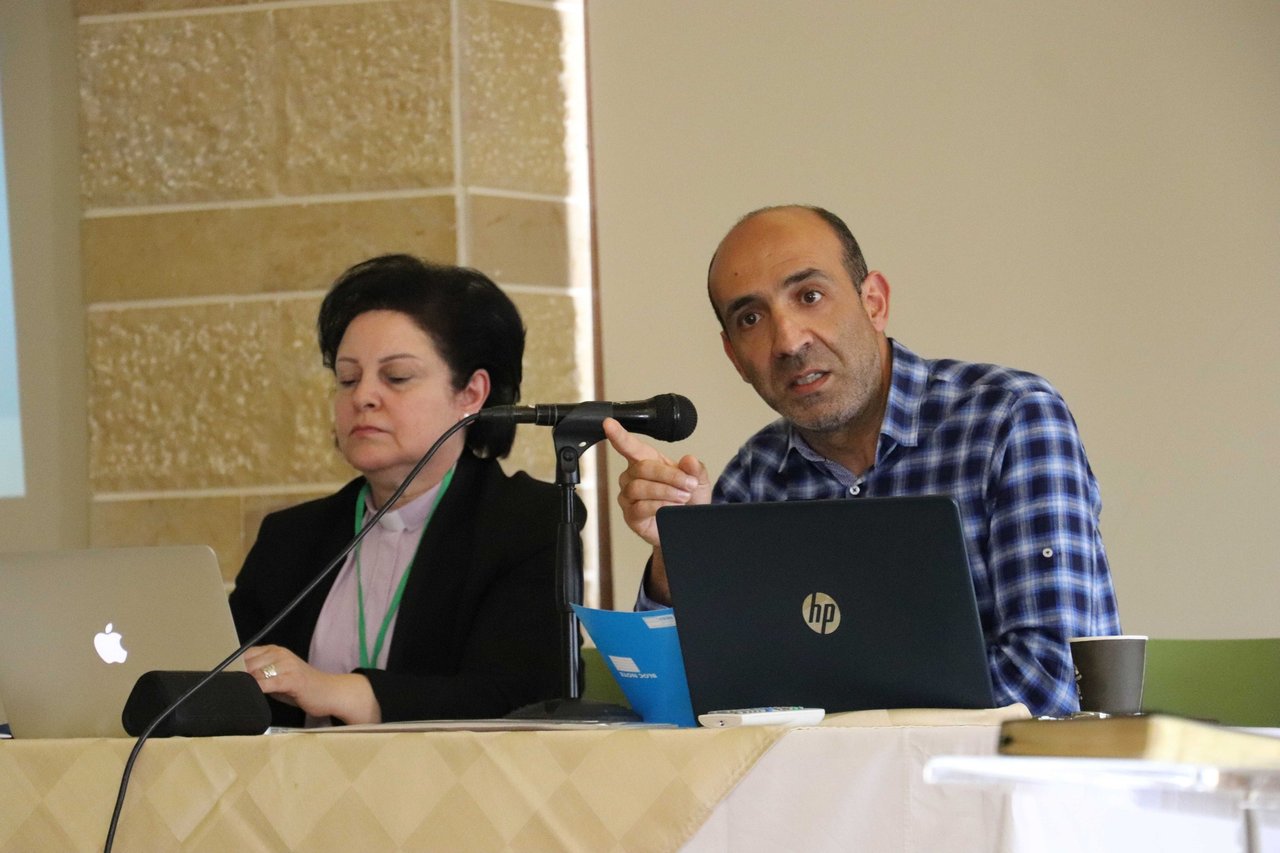On May 15-17, a delegation representing the Reformed Church in Hungary joined partners from across the United States and Europe in a Partners' Consultation hosted by the National Evangelical Synod of Syria and Lebanon (NESSL). Nestled high among breathtaking mountainous landscapes, the Dhour Shweir Evangelical Center served as an alcove of learning, collaboration, reconnection, and revival for the representatives gathered.

Participants of the consultation
NESSL represents a collective of evangelicals that have worshiped within Syria and Lebanon for over the last two hundred years. NESSL is a part of The Supreme Council of the Evangelical Community in Syria and Lebanon, the Middle East Council of Churches, The Fellowship of the Middle East Evangelical Churches, the World Council of Churches, and the World Communion of Reformed Churches (WCRC). As a Synod, NESSL’s involvement in local communities and humanitarian efforts extends well beyond the walls of its 38 churches throughout Syria and Lebanon. For example, NESSL is committed to developing educational institutions in Syria and Lebanon, where its institutions serve over 10,000 students. In addition to its impressive and extensive dedication to education initiatives, NESSL maintains homes for older adults, providing community and ensuring a high quality of life for as long as possible. NESSL’s incredible social work and community initiatives do not halt there, though, as partners at the consultation would receive and discuss various presentations throughout the week.

Rev. Joseph Kassab, General Secretary of NESSL
Monday morning began with a worship centering around the week's scripture, Psalm 85:6, “Will You not revive us again, that Your people may rejoice in You?” Truly, the consultation potentiated a revival for all those in attendance. For partners, the consultation marked the first opportunity to reconnect in person since before the pandemic. For NESSL, this consultation was one of several recent gatherings they’ve been able to host at the retreat center. Most recently, NESSL hosted a women’s leadership gathering at Dhour Shweir earlier this year. Najla Kassab, a minister within NESSL and President of the World Communion of Reformed Churches, emphasized the importance of these leadership conferences in allowing women from across the Synod to gather, learn, and grow together.
To situate the consultation topics, the week began with a presentation from economist Dr. Sami Nader on the current socioeconomic contexts in Syria and Lebanon. The economic devastation in both countries has left large swathes of the population in poverty. In the vacuum of a failed state, there is a lack of essential social services, of basic infrastructure. It is here where NESSL has stepped up, taking on a greater role in providing access to quality education, medical clinics providing essential health care, youth programs to engage an increasingly discouraged generation, and more.
Through the Compassion Protestant Society (CPS), they provide food vouchers for families' needs, including medications they may take. Parallel to this, CPS saw an opportunity to engage high school students from its schools in volunteer work, helping distribute vouchers, ultimately leading them to create the CPS club. This club allowed students to engage with classmates and support communities in need. However, challenges persist with the voucher system, and the community's needs are extensive; Khalil Haddad, the Interim Administrative Director at CPS, says, “You have to try and fulfill the endless basic needs, milk, diapers, and so on,” which becomes unsustainable. And so, CPS began the “agro-basket project,” in which families were given seedlings with instructions on planting and cultivating them to alleviate the voucher system's difficulties. The agro-basket project also provides families with a degree of independence and responsibility that can be empowering. Following the earthquake in northern Syria, the emergency response included food, blankets, heating systems, and emergency medical care.
NESSL also supports communities through its educational institutions in Syria and Lebanon. Public education is insufficient, even wholly unavailable in some areas, to give children the tools they need to succeed. The schools supported by NESSL are very competitive, and individuals of all religions attend the institutions because of the quality of education. Nevertheless, the economic situation in both Syria and Lebanon puts a strain on the operation of these schools. The schools must consider the high cost of energy, livable wages, and transportation costs for the teachers and the increased burden of higher enrollment rates on school resources. The crux of the matter is this: how to raise tuition to cover operational costs if most of the population of students are living under the poverty line?

Dr. Jamal Bitar, Ms. Christine Daoud and Dr. Johnny Awwad (left to right) gave a presentation on schools operated by NESSL
Unfortunately, the schools will have to raise the dollar standard of tuition this coming year to maintain schools. However, with the help of partner organizations, NESSL hopes to buttress the operational costs and establish a scholarship program for families to ease the financial burden. Schools will also help families craft payment plans to meet them halfway. Anna Ghantous, the assistant principal at Tripoli Evangelical School-Minyara, anticipates they will lose some students but remains optimistic that, for the most part, a plan can be made for children to continue their education.
In addition to the Swiss Church Aid, NESSL schools receive support and aid from the Hungary Helps Agency. This year, the agency, coordinating with the RCH, granted NESSL 190,000 USD to be put towards a project proposal for solar panel installations at three schools in Lebanon: The National Evangelical School- Kab Elias, Tripoli Evangelical School for Girls and Boys, and The National Evangelical School- Nabatieh. Fulfilling this project lessens the burden of operational costs for the schools, an essential factor when considering tuition costs going into the following year. Furthermore, the Reformed Church in Hungary (RCH) has pledged 55,000 USD to support NESSL in a project of their choosing. This money will go to the renovation of the church in Qamishly, Northern Syria, as well as to complement the salaries of pastors.

Rev. Najla Kassab and Rev. Hadi Ghantous spoke about NESSL’s ecumenical relations and programs
The Partners’ Consultation was a valuable opportunity to connect with and learn from the ministers within NESSL and to listen to the needs of their communities to asses what we as partners may do in response to support NESSL in its efforts. A concern expressed throughout the consultation was that the church is too overwhelmed doing touch-and-go social work to develop its identity. Though there undoubtedly remains more work to be done in supporting NESSL and our partners in the region with the crises they face, support such as that from programs like Hungary Helps and partners like RCH helps ease the burden.